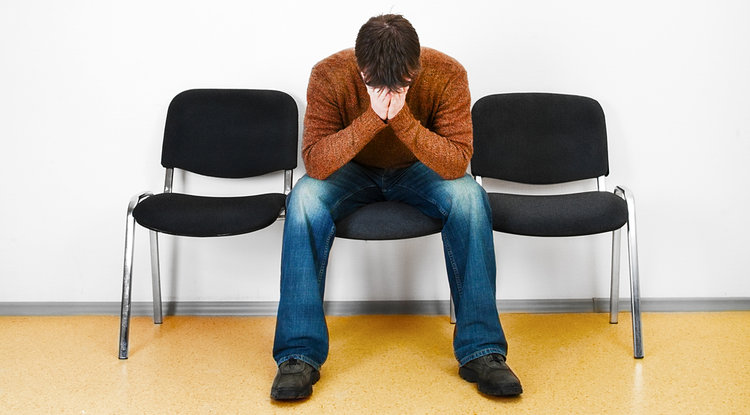Students at top law schools ask for more mental health support

Today’s law students may be more open about discussing their mental health issues than previous generations, but law schools still draw many Type A individuals, frequently on a never-ending quest for perfection.
“I think that people are beginning to realize that by eating right, getting enough sleep and doing things that make them happy, that will make them do better in school. But when you’re in a place like law school, and you see someone going to the law library for four hours, you ask yourself, ‘Should I be studying more?’ And then you give up going to the gym or having dinner with friends to study more,” says Alix Simnock, a Duke University School of Law third-year student, who is president of the school’s bar association.
Simnock is one of 16 student leaders at 13 law schools to sign a recent pledge (PDF) addressed to law school communities that is focused on both improving mental health and promoting wellness on law school campuses.
The letter noted a stereotype that law school must be “grueling and overwhelming” to prepare students for the practice.
“The toll on students’ mental health has become an accepted characteristic of law school life rather than properly recognized as an impediment to our success. Indeed, our laws and judicial decisions display a history of overlooking mental and emotional distress and continue to downplay mental illness as too enigmatic, unimportant or easily faked to have a role in the law,” reads the letter.
Also, it suggested that character and fitness inquiries regarding a student’s mental health history could encourage self-treatment with substance abuse.
“We say to our affected peers: you are not alone. We say to all our friends and colleagues: we can do better. Poor student or practitioner health is not a necessary byproduct of a rigorous legal education and needs to be treated as the scourge of the profession that it is. Students left behind are not failures of personal strength. They are testaments to our collective failure to uplift one another and raise the standards of our trade,” the letter stated.
See also: Disability rights movement’s legislative impact sprang from on-campus activism
Concern about the character and fitness portion of bar admissions can prevent students from discussing mental health problems with law school administrators, says David Jaffe, the associate dean of student affairs at American University Washington College of Law. Jaffe also chairs the ABA Commission on Lawyer Assistance Programs’ law school assistance committee.
In 2013, the U.S. Department of Justice advised Louisiana and Vermont that it is a violation of the Americans with Disabilities Act when bar associations performing character and fitness evaluations ask about bar applicants’ mental health and require detailed medical information.
In response, Louisiana changed its question, Jaffe says. He adds that several other states, but not all, “saw the handwriting on the wall,” and either changed or eliminated mental health questions on bar admissions’ character and fitness sections.
Jaffe would like to see the National Conference of Bar Examiners release aggregate data showing how many bar licenses are delayed each year over character and fitness issues, and why, so that law school administrators can be more precise when advising students.
“The students sometimes ask: ‘If I get help, will I need to report that to the bar, and will I be denied admission,’” Jaffe says. He adds that some states ask a compound question about candidates’ mental health, focused on diagnosis, treatment and whether the condition could create issues if not treated.
“Students will say: ‘I’m taking my medication for ADHD: How do I know if it will create issues if I don’t take it?’” he says.
Law schools could also get more data on mental health so they can better identify areas where reform is most needed, according to Nick DeFiesta and Alexandria Gilbert, co-presidents of the Stanford Law Association.
“Tracking changes in mental health as students progress through law school, as well as evaluating similar metrics and career satisfaction of law school alumni, would go a long way toward quantifying the problem and help administrators assess where focus is most needed,” the two wrote in a statement to the ABA Journal.
Also, they’d like to see law schools include mental health, wellness and professional fulfillment with their core institutional values, and have student programming that is reflective of that.
“It is critical that we talk about these issues openly and honestly. We can’t just pay lip service to ‘mental health.’ We need to acknowledge the prevalence of anxiety, depression, and substance abuse — and specifically name those things. When first-year law students arrive to campus, they should know that it’s OK to struggle, that resources are available for them, and that they are not alone,” the two wrote.
An online forum for student leaders at tier-14 law schools led to the mental health pledge, says Clara Chalk, president of the Texas Law Student Bar Association at the University of Texas School of Law. It was released at the beginning of December, shortly before the reading period that precedes final examinations.
Chalk says that at UT Law, the school has a “mental health week” around exam time. It includes massage chairs and social events. She’d like to see more counselors on campus, in safe spaces that could be easily reached from the law school, and student workshops focusing on behaviors that can be warning signs when students need help.
Also, she stresses that self-care is different for everyone.
“Sometimes it can be playing with a puppy, or watching a chick flick. Sometimes it can mean letting yourself be angry at something, and acknowledging that you don’t want to go into a social situation, you want to stay home,” Chalk says. “It’s also being more forgiving and honest with yourself.”



